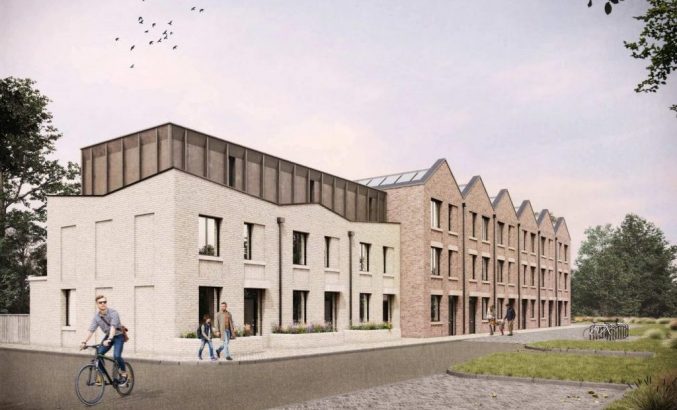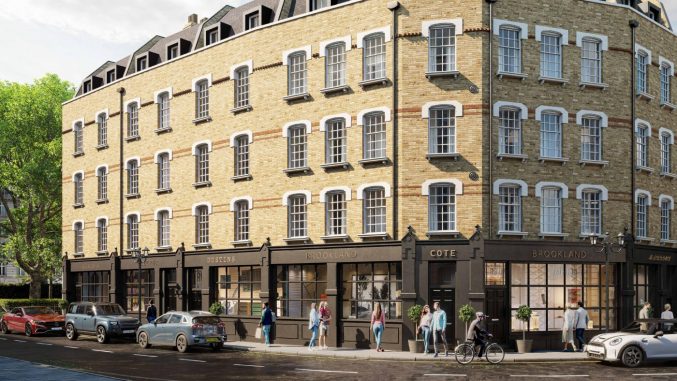Sales market activity softens over the month amid third national lockdown
By Bridging Loan Directory

The January 2021 RICS UK Residential Survey results point to a generally weaker trend in activity across the sales market to open the year.
Comments left by survey contributors suggest that, although agents have been permitted to remain open during the third national lockdown, the overall situation around the pandemic at present is deterring would-be buyers and vendors.
At the headline level, a net balance of -28% of respondents reported a decline in new buyer enquiries over the month.
This latest return brings to an end a run of seven consecutive positive monthly readings beforehand, and is consistent with a noticeable drop off in demand.
Alongside this, there was also a decline in the number of fresh listings being brought onto the market, evidenced by a net balance of -38% of respondents noting a fall.
Prior to January, new instructions had increased, to a greater or lesser degree, in each report since May 2020.
Looking ahead, the number of appraisals undertaken over the month was reportedly below that of the corresponding period last year (net balance -26%) suggesting that the pipeline for new instructions has also softened of late.
Meanwhile, a national net balance of -18% of respondents cited a fall in agreed sales during January, down from a positive reading of +15% in December.
In terms of the regional breakdown, contributors in the East Midlands, South West and Yorkshire & the Humber all returned particularly negative net balance readings this time out.
At the other end of the spectrum, feedback has remained much more resilient regarding the sales picture across Northern Ireland.
Going forward, near term sales expectations remain subdued at the national level, returning a net balance of -29% (down slightly from -23% previously).
Further ahead, the twelve month outlook appears more or less flat, with the net balance coming in at -4% compared with -6% in December.
Despite the softer tone across the range of sales market activity indicators this month, house prices continue to be driven higher for the time being.
Indeed, a net balance of +50% of survey participants saw an increase in January, thereby still signalling a significant degree of upward pressure on prices (albeit this is down slightly on +63% posted in both November and December).
The disaggregated results show house prices continue to rise firmly in virtually all parts of the UK. London remains the sole exception, where a net balance of -9% of respondents noted a fall in prices over the latest survey period.
As such, this marks the first negative reading for the survey’s measure of price growth across the capital since July 2020.
Back at the national level, a net balance of +30% of respondents anticipate prices will increase over the year to come (up slightly from a figure of +24% beforehand).
All UK regions/countries are expected to see prices rise to some degree in the next twelve months, with Wales, Northern Ireland and Scotland all exhibiting especially strong projections.
In the lettings market, tenant demand rose modestly in the three months to January according to a net balance of +12% of contributors (seasonally adjusted quarterly series).
That said, the pace of demand growth has moderated (in net balance terms) across each of the last two reports. At the same time, landlord instructions fell for a second quarter in succession.
The rental growth expectations series again returned a marginally positive net balance of +12%, regarding the near term outlook across the UK as a whole.
Notwithstanding this, respondents in London continue to foresee a fall in rents over the coming three months, returning a net balance of -43%.
Tomer Aboody, director of property lender MT Finance, says:
‘As the property market waits with baited breath for March’s Budget, there has been an inevitable decline in transactions. Fear of the unknown is not helpful as far as market confidence is concerned.
In the wider market there is hope that the Chancellor will provide more stimulus, whether that be in the form of a shakeup of stamp duty, even abandoning it completely or at least reducing it for downsizers.
This would have the welcome effect of bringing more properties to market, putting a lid on price increases. Further continuation of financial assistance for companies would also be extremely welcome.
The national lockdown is not helping the housing market. Although officially it remains open for business, many people are clearly waiting for lockdown to be relaxed before they continue with their sale or purchase.
Although the Chancellor may be accused of kicking the can down the line if he opts for further assistance, it could turn out to be the way forward to ensure the economy doesn’t suffer irreparable damage in the short term.’
John Eastgate, Managing Director of Property Finance at Shawbrook Bank, comments:
“The Stamp Duty holiday has become the latest ill thought through initiative that the property market has been landed with. These figures show just how much it has distorted consumer behaviour.
Suggestions of an extension or tapered end to the incentive are welcome but what the market needs is a sustainable, long-term approach from government.
Although well intentioned, the Stamp Duty holiday becomes the next in a line of tactical initiatives that have created more problems than they solved.
The government must intervene to avoid the damage that a cliff-edge end to the holiday will bring. It should adopt a more considered approach to housing that will avoid the need for knee-jerk responses in the future, thus creating that much needed stability.
The reality is that the fundamentals of the supply:demand imbalance coupled with ever increasing affordability challenges for first time buyers will sustain property prices beyond the end of the holiday.
Property investment is not a short term game and committed investors looking for long term gains should remain confident in the future of the housing market.”










You must be logged in to post a comment.